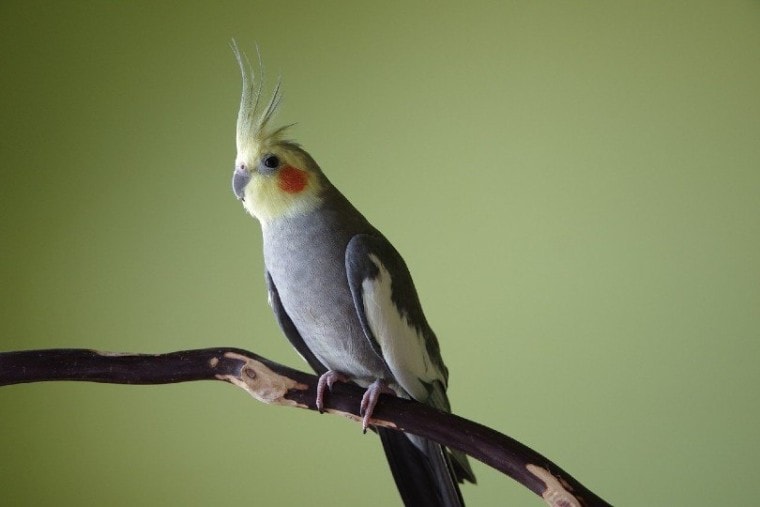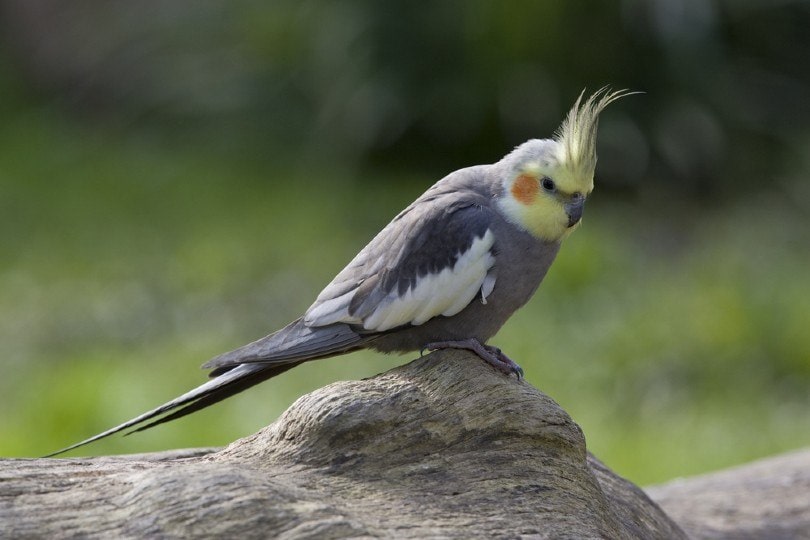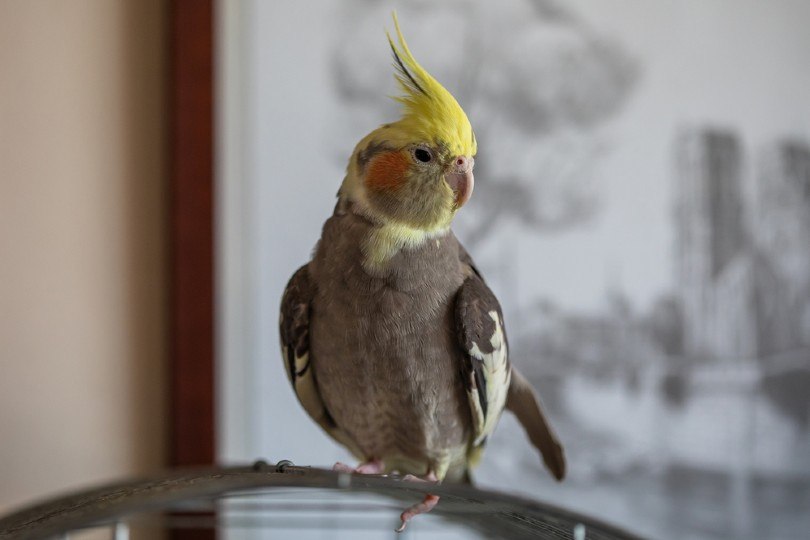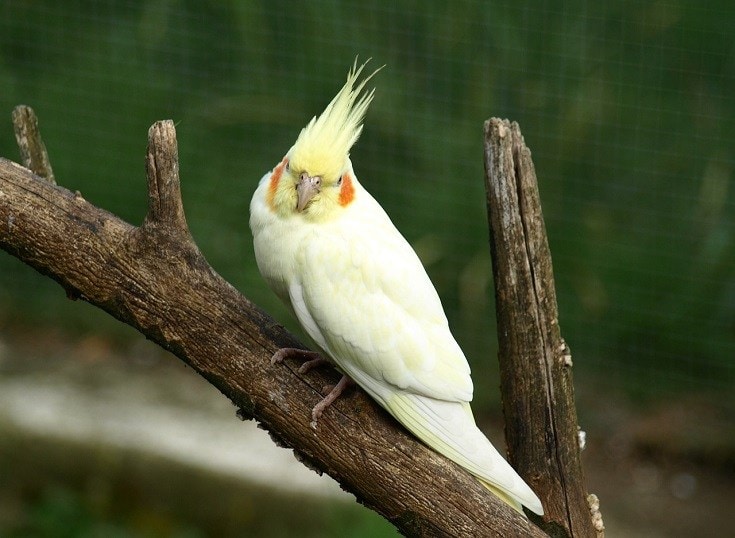
Click to Skip Ahead
The most popular pet birds of the parrot family are cockatiels. They are native to Australia, where they are also called quarrions and weiros. Cockatiels are known to be quite affectionate and gentle.
Whether you already own a cockatiel or are planning on bringing your first one home, one of the key parts of owning a pet is figuring out how long it will live. A pet cockatiel can live for up to 25 years—some have even lived longer! This means that owning a cockatiel is a long-term commitment.
The Average Lifespan of the Cockatiel
The cockatiel in the wild has a life expectancy of about 10 to 15 years.
But a tame cockatiel that has been well taken care of can live an average of 20 to 25 years, due in part to a healthy and nutritious diet.
According to the Guinness World Records, the oldest reported cockatiel on record is Sunshine from the U.S., who was 32 years of age as of 2016. Unfortunately, there have been no official updates on Sunshine since then, so it’s hard to say if she broke her own record.
There are steps you can take to help your cockatiel live a long life. Sometimes health problems or genetics might intervene that you will have little control of, but you do have control of many aspects of your cockatiel’s health.

Why Do Some Cockatiels Live Longer Than Others?
1. Bonding
Cockatiels shouldn’t be any younger than 12 weeks old when you bring one home. These birds are very gentle and social and will need lots of attention and affection. Living in a loving and stress-free home where a cockatiel receives the attention it needs will help to prolong its life.
2. Diet
This is what sets the pet cockatiel apart from those found in the wild. Proper nutrition will help to extend your cockatiel’s life.
You can provide your cockatiel with high-quality pellets made for cockatiels, or there are also high-quality seed mixes. However, seeds or pellets shouldn’t make up the entirety of your bird’s diet. You’ll need to supplement with a variety of other food that will mimic what they would eat in the wild.
You should always ensure your cockatiel has access to fresh and clean water daily. This should be provided in two different ways. For example, both a bottle and a dish.
3. Health
Keeping an eye on your cockatiel’s overall health and noting any changes in personality, behavior, and appearance is vital.
Cockatiels are generally healthy birds, but when something goes wrong, you need a resource you can trust. We recommend The Ultimate Guide to Cockatiels, an excellent illustrated guide available on Amazon.
This detailed book can help you care for your cockatiel through injuries and illnesses, and it also offers helpful tips on keeping your bird happy and healthy. You’ll also find information on everything from color mutations to safe housing, feeding, and breeding.
4. Exercise
Having a large cage for your cockatiel is important, but it still isn’t enough for proper exercise. You should give your cockatiel the chance to really stretch its wings and fly about two times a day.
Make sure your bird is trained to sit on your finger, and you can use food to entice it back into the cage.
Toys can also be enriching for your cockatiel and will give it different opportunities for exercising.

5. Safety
It goes without saying that keeping your cockatiel safe from accidents and harm will go a long way to ensure your bird will live a long life. Always supervise your cockatiel when it’s outside the cage, particularly if you have other pets or young children.
And always ensure that all doors and windows are closed when your bird is getting its exercise. You should also be sure that any toy you purchase is safe for your cockatiel and that the room you let it fly around in has been cockatiel-proofed.
6. Cleanliness
Keeping your cockatiel and its habitat clean can keep it happy and healthy. You should ensure your bird has a daily bath, and you need to keep its cage clean.
Hygiene is paramount for keeping your cockatiel in good health and this, of course, means a longer life.

How to Tell Your Cockatiel’s Age
If you’re not sure how old your cockatiel actually is, there are some physical signs that might give you a better idea. Of course, a good avian vet might be able to estimate your bird’s age, but if your cockatiel is still young, the following are some ways of helping you determine your bird’s age:
There are very subtle signs on the cockatiel’s face and feet that can also give you an idea of the age, but you’ll need to be pretty experienced at spotting these signs.
Final Thoughts
It’s incredible what a difference living in a home instead of the wild can make for a cockatiel’s lifespan! These beautiful birds make loving companions, and as long as you take very good care of your cockatiel, it will be with you for quite a long time.
Featured Image Credit: Jenifer Kramer, Pixabay










